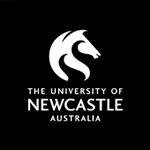About the Project
Irregular and rapid heartbeat can lead to cardiovascular disease, including heart failure, blood clots and stroke, affecting millions of people worldwide. Recent evidence suggests a link between cardiovascular disease and brain injury, most likely due to disrupted blood-brain barrier (BBB, the physiological barrier that protects the brain from blood-borne toxins and pathogens, and regulates molecular traffic between the blood and the brain). Maintaining normal blood flow is essential for brain endothelial function, including maintaining barrier integrity. We have shown that microvessicles (MVs, small membraneous vesicles released by cells) are released from brain endothelial cells during inflammatory conditions leading to barrier dysfunction. We hypothesise that MVs released during conditions with altered blood flow or sheer stress will lead to disruption of the BBB and worsening of outcomes. The aim of this project is to investigate the underlying mechanisms with a focus on the BBB.
This project is a collaboration between researchers based at the University of Sydney (USYD) and the University of Newcastle (UoN). The PhD candidate will be primarily based at the Faculty of Medicine & Health, University of Sydney, with some visits to UoN. They will use state of the art models of the BBB, and gain experience in a variety of cellular and molecular assays, and advanced microscopy skills. In addition, if desired, the student will have the opportunity to gain experience in some in vivo models. They will join a team undertaking an array of preclinical and clinical research in this field, and will have access to cutting-edge laboratory equipment, exceptional mentoring opportunities, and collaborative work with overseas biotech companies. Applicants should have strong work ethics, and communication and teamwork skills. Out of hours and weekend work maybe required due to the nature of the project.
Supervisory team:
Dr Adjanie Patabendige (Primary)
Prof Georges Grau
A/Prof Doan Ngo
Eligibility Criteria
NOTE: A full scholarship is available to domestic/Australian applicants. Self-funded international applicants can be considered.
In addition to the minimum eligibility criteria, we are seeking applications from individuals who have completed, or are shortly expected to complete, an undergraduate (hons) degree in Biomedical Science or an equivalent degree. Applicants are required to have a first class or second-class upper honours degree. Strong proficiency in English is essential.
Application Procedure
Interested applicants should send an email expressing their interest along with scanned copies of their academic transcripts, CV, a brief statement of their research interests. Due to the large number of applications received, only shortlisted applicants will be contacted (usually within two weeks of application).
Contact: Dr Adjanie Patabendige ([Email Address Removed]) or Prof Georges Grau ([Email Address Removed])
Funding Notes
A full scholarship is available to domestic/Australian applicants. Self-funded international applicants can be considered.
The scholarship consists of the following:
- Stipend (living allowance) - $27,596 indexed in January each year. The stipend is offered for a period of 3.5 years
- Tuition fee scholarship for a maximum of 4 years (or part-time equivalent)
- Relocation allowance of $1500 (a domestic candidate will need to provide receipts as evidence of incurring relocation expenses)

 Continue with Facebook
Continue with Facebook

